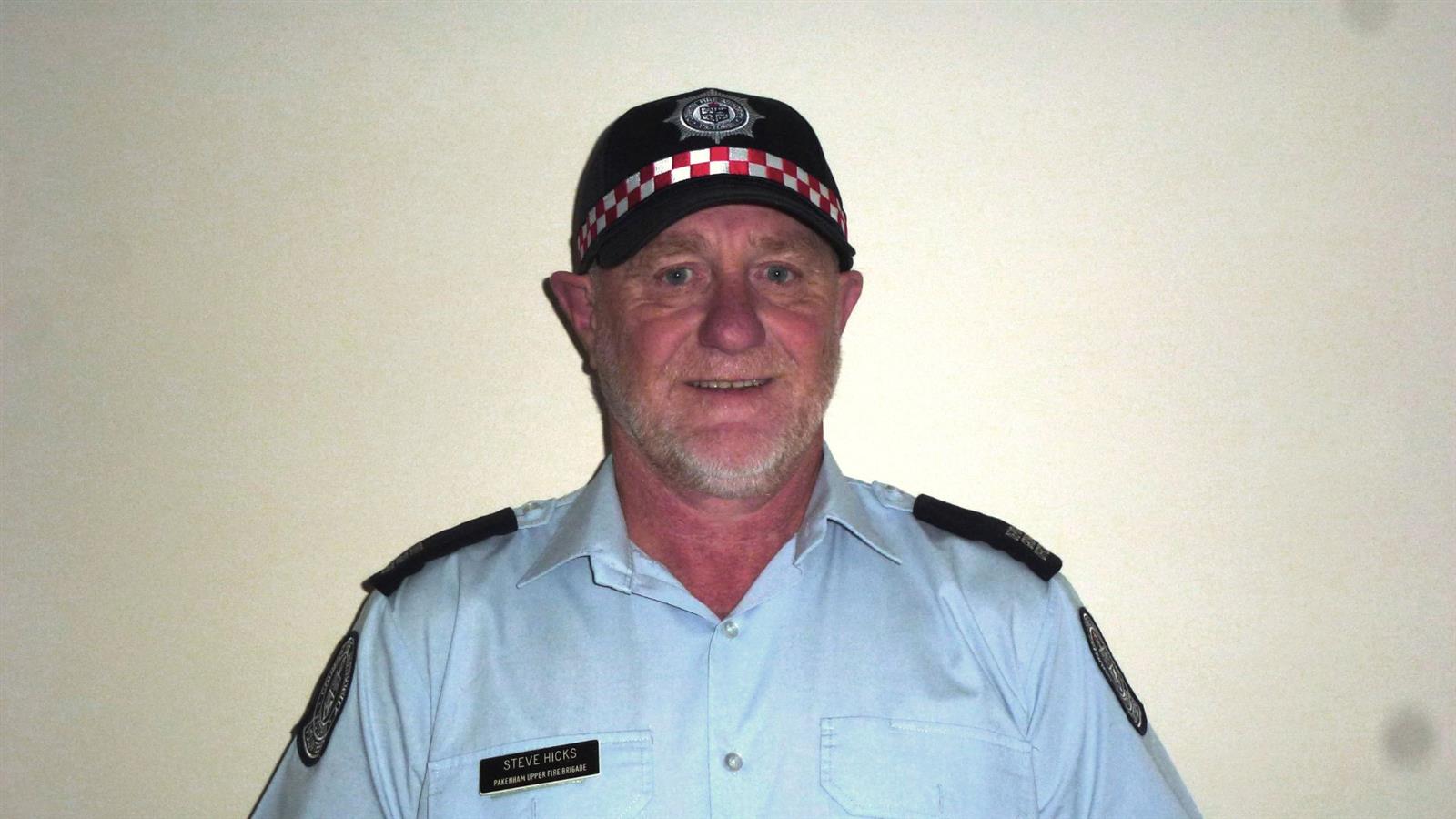 Pakenham Upper member Stephen Hicks
Pakenham Upper member Stephen Hicks
For half a century, Stephen Hicks has dedicated his time to CFA and community, mentoring members, campaigning fire prevention and fighting some of the biggest bushfires in Australia’s history.
For these remarkable efforts, the Pakenham Upper member has been recognised in today’s King’s Birthday Honours, receiving an Australian Fire Service Medal (ASFM) for 50 years of dedicated service.
The ASFM was created to recognise people in occupations that are more hazardous than others.
“It’s a bit of an honour really, especially being recognised by your own peers,” Stephen said.
“I know a couple of volunteers who have the award and I hold them in really high esteem, so to get the same recognition they’ve received in the past is a real honour.”
Stephen joined CFA in 1974 at age 16. He was captain of Narre Warren North from 1981 to 1987 and captain of Pakenham Upper from 1993 to 2001.
“A local captain called in and told me and a few mates we should join CFA and make ourselves useful,” he said.
And that’s exactly what he’s done.
During his time at the CFA, Stephen has been involved in some of Australia’s worst bushfires including the 1983 Ash Wednesday fires and the 2009 fires.
During Ash Wednesday, Stephen was captain of Narre Warren North Brigade when the Belgrave South fire ran through the brigade’s response area, devastating the neighbouring township of Upper Beaconsfield.
For the next 13 days, he and his wife Lisa took turns mopping up and supporting the surrounding communities, all while mourning the loss of a fellow brigade member, and fellow friends who lost their lives on the Narre Warren Tanker at Upper Beaconsfield.
In 2009, Stephen played a leadership role in the planning and response to the Bunyip State Park Fire. When the fire started, he was part of a small group of CFA firefighters who were shadowing the fire, planning and developing tactics for the predicted breakout into private land.
At the height of the fire, there were 72 CFA appliances, 42 DSE appliances, six Metropolitan Fire Brigade (MFB) appliances and 10 aircraft. The fire was eventually contained on 4 March 2009, having burnt approximately 26,200 hectares in the Bunyip area, with 31 houses destroyed and tragically 173 lives lost during the entire event.
Stephen said CFA had learned so much from the two fires.
“There have been many changes to vehicles and equipment and the level of training we do now. The organisation is completely different to how it was,” he said.
“If you go back to Ash Wednesday, we were really bushfire brigades, and it was up to individual brigades to do what they thought right. It’s so well organised now.”
Stephen also fought in the 2020 summer fires, 2019 fires in Bunyip State Park, 2002-3 and 2006-7 alpine fires and 2001 Sydney Christmas fire.
Just recently in 2023, he attended the Queensland fires as part of the Incident Management Team.
Following the 2009 fires, a detailed discussion within the Cardinia Group, led by Stephen identified that further training was required for future leaders to be ready to step into higher roles. As a result, the Future Leaders Program was established. He has also been extensively involved with the promotion and education of future District 8 leaders.
Training is one of Stephen’s biggest joys.
“I have learned so much from other people and done so many different roles and learned skills along the way. It’s great to be able to pass on knowledge and skills to other people and watch them develop and grow,” he said.
Stephen has made outstanding efforts and achievements in fire preparedness, fire prevention and fire response.
He has worked with the Cardinia Shire and Cardinia Group of fire brigades on municipal fire planning, prevention and fuel reduction burning activities continuously since 2001.
He is also 3rd Lieutenant in the Pakenham Upper Brigade; part of this role is Community Risk and Resilience as he has a very keen interest in fuel reduction burning.
Stephen has done so much over 50 years and two big achievements comes to mind.
“Pakenham Upper was a much bigger brigade when I finished up as captain, I enjoyed growing and increasing the membership and participation,” he said.
“I also get a lot of fulfilment and enjoyment out of training and passing on what I have learned from others.”
Stephen is celebrating the honour with family.
“It’s really nice when you are recognised for the effort and time you’ve put in. It’s pretty time consuming but if I didn’t enjoy it, I wouldn’t do it either,” he said